
Early morning in Hanoi, Vietnam
The countries, culture and people of Vietnam, Cambodia, Burma and the surrounding area interest me. Vietnam was the first country I travelled solo in and while I was there, in addition to the cultural immersion, I also enjoyed reading the works of two local authors, which I purchased from a street vendor, Bao Ninh’s The Sorrow of War and Duong Thu Huong’s Paradise of the Blind, both of which are excellent.
We learn a little how they live, what they eat and how a soldier deals with the aftermath of war. These occasional books translated into English provide an important insight into real experiences and a way of thinking that cannot be portrayed by any other than those who were raised there. Their experiences often cause us to question our own perspective, our knowledge, and beseech us to see things from another point of view. It is a joy therefore to come across a publisher of who said:
 When I came to S&S, I told everyone here I wanted to publish books that deepen the cultural conversation and take readers to places they couldn’t otherwise go. – Jonathan Karp, Simon & Schuster
When I came to S&S, I told everyone here I wanted to publish books that deepen the cultural conversation and take readers to places they couldn’t otherwise go. – Jonathan Karp, Simon & Schuster
This is certainly the case with Vaddey Ratner’s In the Shadow of the Banyan, narrated from the perspective of 7-year-old Raami, a girl whose experiences reflect the author’s own, though she has chosen to fictionalise her story.
It isn’t so much the story of the Khmer Rouge experience, of genocide, or even of loss and tragedy. What I wanted to articulate is something more universal, more indicative, I believe, of the human experience our struggle to hang onto life, our desire to live, even in the most awful circumstances. – Vaddey Ratner

Lest we forget, Hanoi, Vietnam
The daughter of royalty, although a failed, corrupt democracy ruled, she and her family were evicted by the revolutionary Khmer Rouge, a marginal guerrilla group – whose leaders were from the same intellectual class as Ratner’s well-educated father, however who held radical ideals to transform the social fabric by destroying traditional family, social and wealth connections and creating an experimental collective.
Their revolution took the form of putting the population into work camps in living conditions worse than peasants. Whether driven by fear, paranoia or disillusionment, they ruthlessly continued to seek out and judge people as the enemy, a definition that moved and changed like the current in the Mekong itself until through murder, disease or starvation scholars estimate that as many as a third of the  population (1-2 million) died. The regime was finally overthrown by the Vietnamese military in January 1979.
population (1-2 million) died. The regime was finally overthrown by the Vietnamese military in January 1979.
Ratner tells the story of Raami, physically challenged from a polio defect which shortened one of her legs, her experience during the period of exile with her parents and sister, how she survived the extreme living and working conditions and what it taught her along the way. She remembers the stories and poems that her father shared with her and they continue to be a source of strength for her throughout her life.
“Do you know why I told you stories Raami?” he asked. I shook my head. I knew nothing, understood nothing.
“When I thought you couldn’t walk, I wanted to make sure you could fly.” His voice was calm, soothing, as if it were just another evening, another conversation.
“I told you stories to give you wings, Raami, so that you would never be trapped by anything – your name, your title, the limits of your body, this world’s suffering.”
It is a humbling story and frightening to perceive, yet dealt with by Ratner in a way that allows us to acknowledge and attempt to understand something of the seemingly never-ending cycle of oppression, idealism, revolution and the dangers inherent when revolutionary intent is hijacked by power, destroyed by paranoia and becomes tyrannical, while preserving the few special moments that continue to pass between people despite the danger posed by their selfless acts.
 Terrible as it is and damaged as they are, it is those who survive and who are still able to maintain some belief in the human spirit and humanity that bring one of the few gifts that such terror evokes. It is a price no person would ever wish to pay.
Terrible as it is and damaged as they are, it is those who survive and who are still able to maintain some belief in the human spirit and humanity that bring one of the few gifts that such terror evokes. It is a price no person would ever wish to pay.
For all the loss and tragedy I have known, my life has taught me that the human spirit, like the lifted hands of the blind, will rise above chaos and destruction, as wings in flight.
The author has succeeded in taking this sad chapter in her country’s history and showing us some of its beauty and culture, sharing memories and thoughts that can never be erased and putting them into a new form, this literary work, which we are privileged for it to be shared in English.
In a sense it leaves us puzzled and perplexed, just as witnessed in Aminatta Forna’s The Memory of Love, yet another tyrannical regime that loses its way to the detriment of its people. The stories can be shared and passed on, but they also represent a kind of grief for a way of life now lost to future generations.
Note: This was an Advance Reader Copy (ARC) provided by the publisher via NetGalley.
43.529742
5.447427
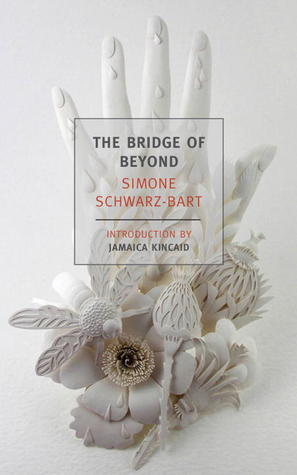









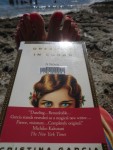


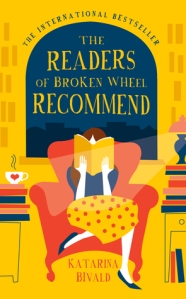 Sometimes, these are the only books that will do. That rare breed of literature that entertains, uplifts and demands little in return, the books we read when we are fed up with thinking and wondering why certain things are the way they are.
Sometimes, these are the only books that will do. That rare breed of literature that entertains, uplifts and demands little in return, the books we read when we are fed up with thinking and wondering why certain things are the way they are.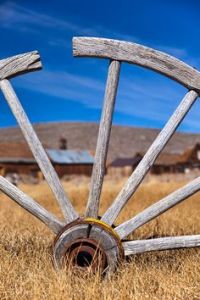 Sara has been writing letters to Amy for the last two years, they are bookish pen pals who share a love of literature and enjoy the uninterrupted conversation of a letter. Amy invites Sara to visit, she arrives in the small, dilapidated town of Broken Wheel, most-likely it first and only ever tourist, only to find that the person who invited her didn’t tell her something VERY important that will affect her two month stay.
Sara has been writing letters to Amy for the last two years, they are bookish pen pals who share a love of literature and enjoy the uninterrupted conversation of a letter. Amy invites Sara to visit, she arrives in the small, dilapidated town of Broken Wheel, most-likely it first and only ever tourist, only to find that the person who invited her didn’t tell her something VERY important that will affect her two month stay.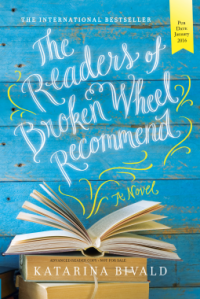 A light-hearted, uplifting story that should be in the section of the bookstore or library entitled “guaranteed to lift or lighten your mood”.
A light-hearted, uplifting story that should be in the section of the bookstore or library entitled “guaranteed to lift or lighten your mood”.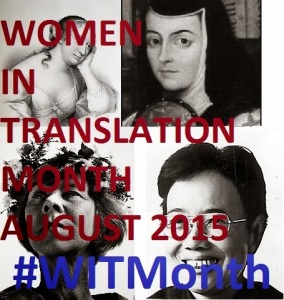
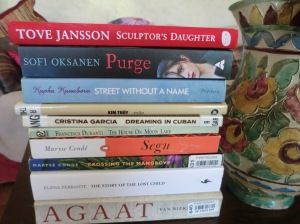






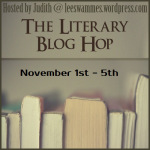
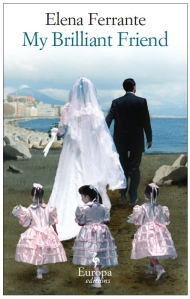


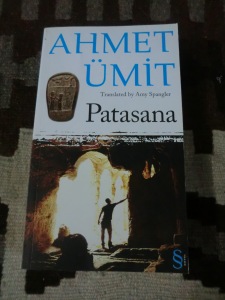
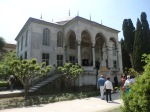















 When I came to S&S, I told everyone here I wanted to publish books that deepen the cultural conversation and take readers to places they couldn’t otherwise go. – Jonathan Karp, Simon & Schuster
When I came to S&S, I told everyone here I wanted to publish books that deepen the cultural conversation and take readers to places they couldn’t otherwise go. – Jonathan Karp, Simon & Schuster
 population (1-2 million) died. The regime was finally overthrown by the Vietnamese military in January 1979.
population (1-2 million) died. The regime was finally overthrown by the Vietnamese military in January 1979. Terrible as it is and damaged as they are, it is those who survive and who are still able to maintain some belief in the human spirit and humanity that bring one of the few gifts that such terror evokes. It is a price no person would ever wish to pay.
Terrible as it is and damaged as they are, it is those who survive and who are still able to maintain some belief in the human spirit and humanity that bring one of the few gifts that such terror evokes. It is a price no person would ever wish to pay.
 Eva and her companions have travelled to the ancient Silk route city of Kashgar in the hope of converting lost souls, but seem to find only trouble, not helped by the questionable motivations of each of the individuals that make up the group. Tolerated but unwelcome, they find themselves ostracized and seen as bringing bad luck during a time of political and religious unrest.
Eva and her companions have travelled to the ancient Silk route city of Kashgar in the hope of converting lost souls, but seem to find only trouble, not helped by the questionable motivations of each of the individuals that make up the group. Tolerated but unwelcome, they find themselves ostracized and seen as bringing bad luck during a time of political and religious unrest. Born in 1968, clearly intelligent and showing she had potential from a young age, ironically – getting married at the age of 19 was something of a rebellious act. Nineteen, an age of youthful idealism, where if not wary, we risk being fooled into taking the intensity of our feelings seriously and wind up wed. Or am I being just a tad cynical?
Born in 1968, clearly intelligent and showing she had potential from a young age, ironically – getting married at the age of 19 was something of a rebellious act. Nineteen, an age of youthful idealism, where if not wary, we risk being fooled into taking the intensity of our feelings seriously and wind up wed. Or am I being just a tad cynical? The death of her mother at 45, knocked her off her straight and wedded course setting her on a side road to self-destruction, though fortunately something inside, perhaps the ever-present loving spirit of her mother (and a few of her sensible genes) mapped out an escape route from her self-destructive self by planning to hike the Pacific Crest Trail (PCT).
The death of her mother at 45, knocked her off her straight and wedded course setting her on a side road to self-destruction, though fortunately something inside, perhaps the ever-present loving spirit of her mother (and a few of her sensible genes) mapped out an escape route from her self-destructive self by planning to hike the Pacific Crest Trail (PCT).

